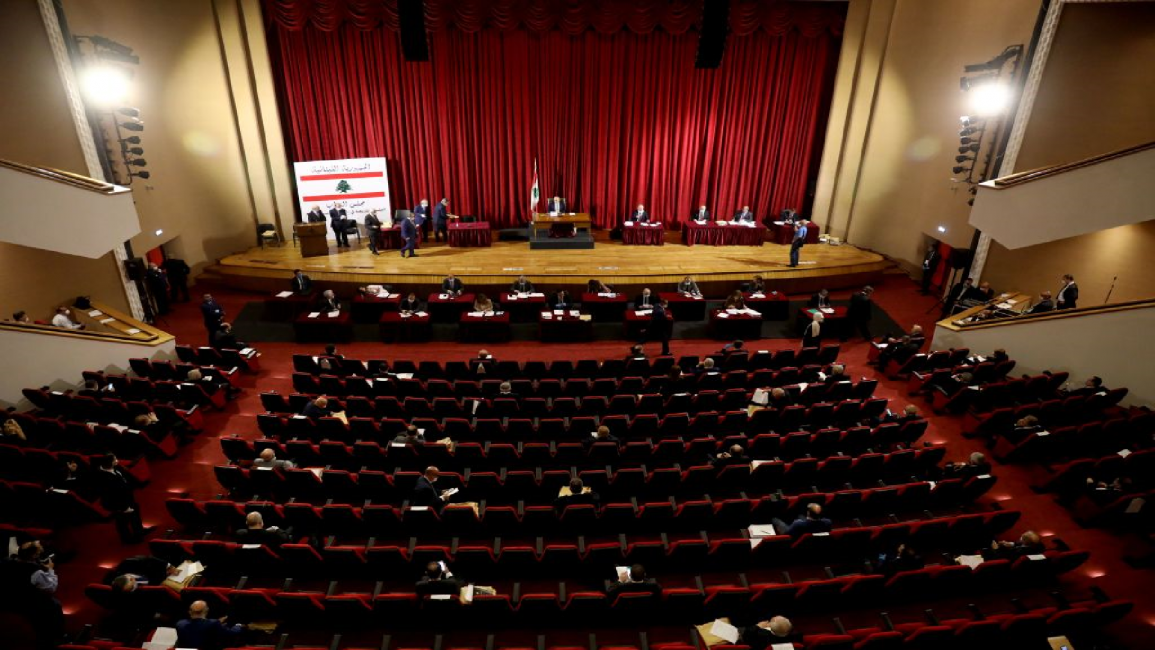Lebanese MPs meet to give vote of confidence to new cabinet
Lebanese parliamentarians met on Monday to give a vote of confidence to the new cabinet, which comes amid Lebanon's worst-ever financial and economic crisis.
MPs met at the UNESCO Palace in Beirut - where sessions have been held since the Covid-19 outbreak for social distancing as a temporary venue - to either vote in favour or against the new government, led by Najib Mikati and made up 24 ministers.
A source familiar with the parliamentary session told The New Arab's sister site, Al-Araby Al-Jadeed that the cabinet will win the vote of confidence by more than 90 votes, with only the Lebanese Forces party and a few other MPs voting against.
Local media have said that it will win by 95 to 96 votes.
Most parliamentary blocs giving a vote of confidence have representatives in the new cabinet, which came 13 months after the last one resigned in the wake of the massive and deadly Beirut port explosion last year August.
The start of the session was disrupted, however, as the electricity went off.
Mikati was forced to cut short his speech on his cabinet's 9-page ministerial statement in case lights went off again.
A fuel tanker carrying diesel arrived at the building so that enough electricity would be provided for the meeting.
Lebanon is facing a chronic energy crisis made worse this year by a shortage of fuel in the country. Power rationing is so bad in some parts of the country that they receive only a couple of hours of electricity per day.
Huge challenges lie ahead for this cabinet. It has vowed to solve the energy crisis - responsible for about half of Lebanon’s sovereign debt - tackle the socioeconomic difficulties facing most Lebanese, resume talks with the IMF, and continue with the Beirut blast inquiry.
It is expected to cooperate with international firm Alvarez and Marsal on a forensic audit of the Central Bank, after signing a contract with the company last week.
This remains a key demand of the IMF if it were to reach any future agreement with Beirut.
Only 117 out of 128 MPs remain in the legislator, as eight resigned after the 4 August blast and three passed away this year.
Some MPs took the floor to deliver speeches, as a quarrel broke out between some of the lawmakers when the topic of money transfers abroad was brought up.
Speaker Nabih Berri, also head of the Amal Movement, said the session would go on until midnight if it had to, in order to finalise the vote on Monday.
Former premier and head of the Future Movement Saad Hariri was absent from Monday's session. He was tasked with forming a cabinet before Mikati, but stepped down in July due to stark differences with President Michel Aoun.
Most Lebanese remain sceptical that any changes will be made by the cabinet, mostly made up of the same ruling class which has governed the country for decades.



